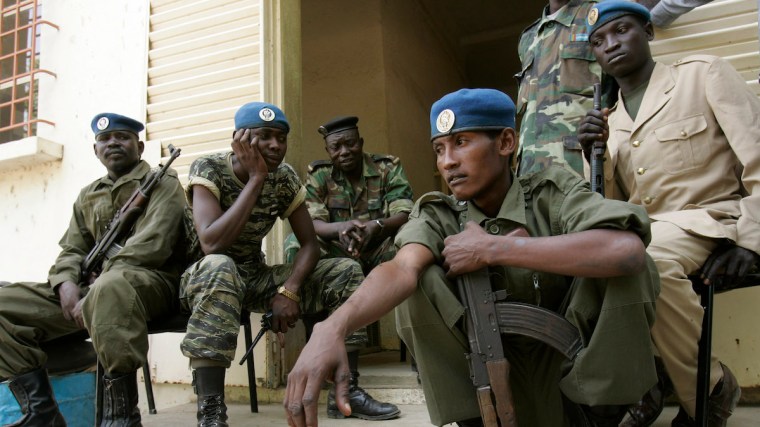In separate incidents on August 8 and August 10, 2022, the Chadian gendarmerie, a military police force, arrested and detained journalists Janvier Mouatangar and Anner Sabartang in the southwestern part of the country.
On August 8, the commander of the gendarmerie in the city of Doba detained Mouatangar, a correspondent for the radio station La Voix du Paysan, and accused the journalist of defaming him in a broadcast report about agricultural management, according to a statement by the Union of Journalists of Chad (UJT) and the journalist, who spoke to the CPJ over the phone.
Mouatangar told CPJ that earlier that day, he had broadcast a report about farmers in the village of Ndoroman, about six miles (10 kilometers) from Doba, who were angry about alleged over-grazing by herders. Mouatangar had quoted the herders as saying that the commander of the gendarmerie, whose name Mouatangar said he did not know, owned the fields and gave them permission to be there. CPJ was not able to determine the identity of the commander.
Mouatangar, who is also a farmer, was working in one of his own fields outside of Doba soon after the broadcast when he received a call from an unknown person who asked him to report to the office of the gendarmerie’s investigations unit, he told CPJ. When Mouatangar refused and asked why he was being summoned, the caller said he would need to “show the evidence” supporting the broadcast about the fields, the journalist said. Mouatangar offered to show them the damage to the fields in Ndoroman, which he said the caller interpreted as a refusal to comply with the summons.
After the call, two armed gendarmerie officers from the investigations unit arrived at his field on motorcycles and asked him to go with them to Ndoroman, Mouatangar said, adding that the officers let him change his clothes before taking him.
“They told me we were going to Ndoroman, and on the way they turned toward Doba,” the journalist told CPJ, adding that it felt more like a kidnapping than an arrest. When he arrived at the gendarmerie office in Doba, officers insulted him, called him a criminal, and accused him of defaming and smearing them, he said.
After Mouatangar spent the night at the Doba gendarmerie office, on August 9 officers tried to compel him to write a letter of apology to their commander and retract his reporting about Ndoroman, he said, adding that he refused. Then the officers brought the journalist before the local prosecutor, Colette Ngaoundi Bombaïto Nadjilem, who ordered his release but instructed him to return the next day.
On August 10, Mouatangar returned and met with Nadjilem, who told him the case had been dropped because the gendarmerie commander had withdrawn his complaint.
CPJ’s message sent to the directorate of the gendarmerie of Chad via a messaging app was not answered. CPJ reached out to the Doba prosecutor’s office via messaging app, but has not received a reply.
Separately, on August 10, gendarmerie officers detained Sabartang, editor-in-chief of Radio Gaya Tcholwa, on the orders of Germain Beramgoto, a local government representative in the southwestern region of Kabbia, according to news reports and Nathan Tah Leubnoudji, secretary general of Chadian Journalists and Reporters Network, who spoke with CPJ in a phone interview.
The officers initially detained Sabartang at Beramgoto’s house and then transferred him to the local gendarmerie commander’s house, Leudnoudji told CPJ. On August 13, Sabartang was taken to the gendarmerie office and released without charge. While in custody, the officers seized Sabartang’s phone and questioned him about the broadcast.
Leubnoudji told CPJ that the journalist’s phone had not been returned as of September 12. CPJ reached out to Sabartang via messaging app, but did not receive a reply.
The arrest was related to an August 3 broadcast by Sabartang about conflict over Beramgoto’s appointment of a local leader, with some in the area arguing that the local leader wasn’t representative of the people of Kabbia, according to Leubnoudji.
Several days before being arrested, Sabartang had received a phone call from Beramgoto, who blamed the journalist for the negative reaction against him following the broadcast, according to Leubnoudji and a recording of the call, which a local news site posted on Facebook and CPJ reviewed.
CPJ sent questions to Beramgoto via messaging app, but received no response.
